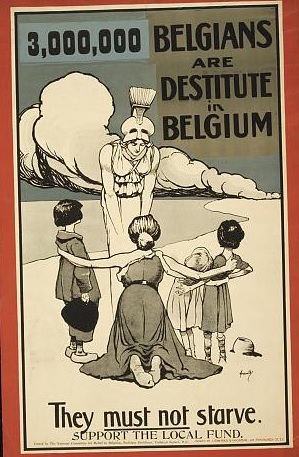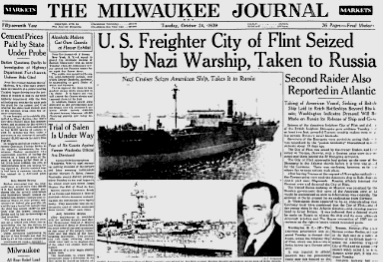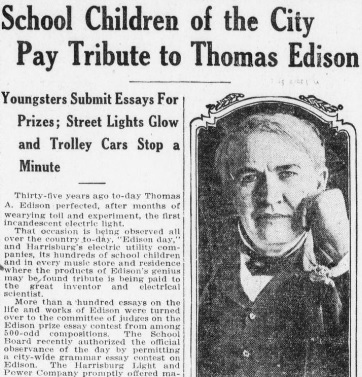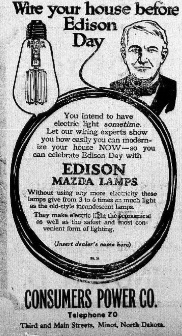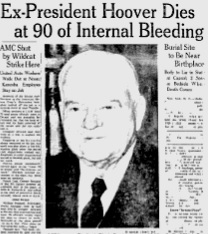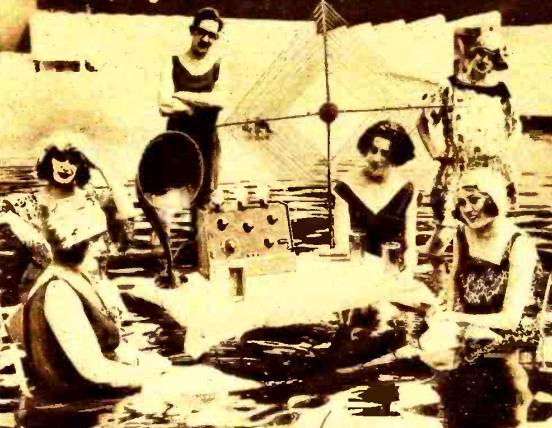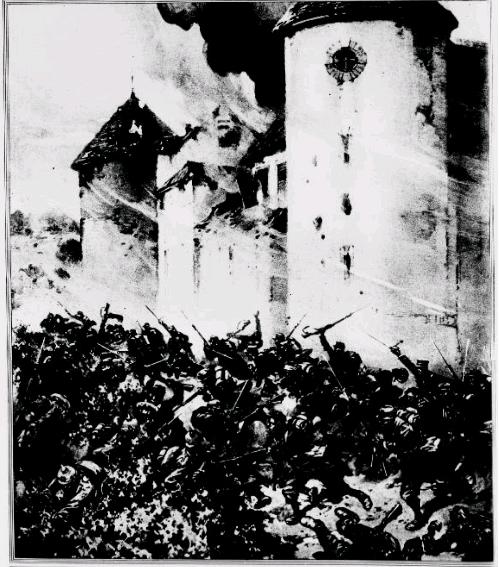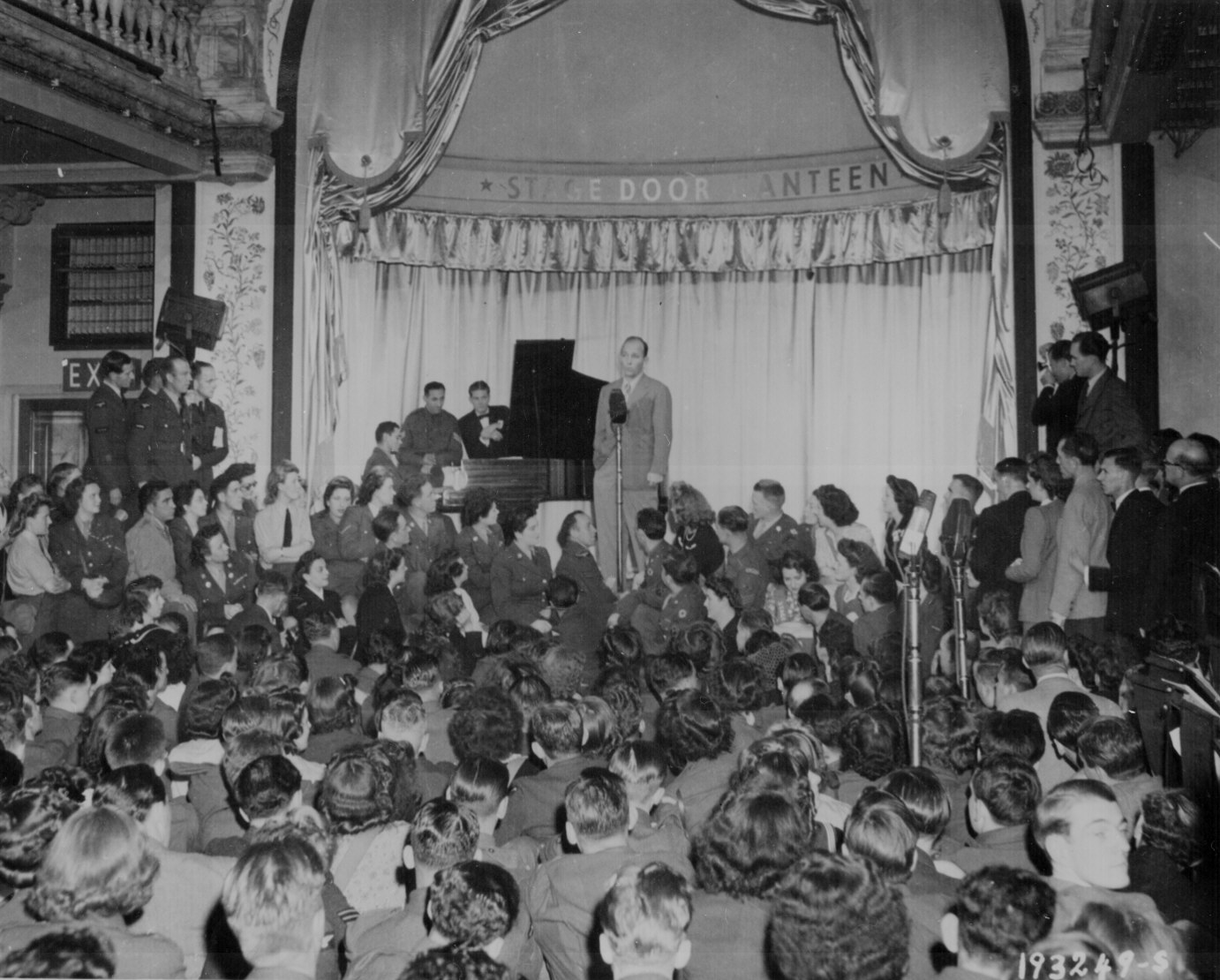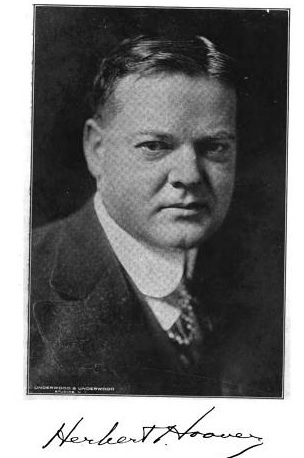
Herbert Hoover, 1874-1964.
On this day fifty years ago, President Herbert Clark Hoover died in New York. A native of Iowa and a graduate of Stanford University, he was a successful mining engineer. During and after both world wars, he was first and foremost a humanitarian. During the 1920’s as Secretary of Commerce, he was largely responsible for the regulatory scheme that allowed radio to flourish.
Hoover was involved in public life for half a century. Fifty years before his death, almost to the day, he was named chairman of the commission charged with the relief of Belgium. The Richmond (Virginia) Times Dispatch for October 22, 1914, carries the following report:
At last real action has been taken for the relief of the Belgians, upon whom has fallen the great burden of suffering from the war. An American commission, headed by Herbert C. Hoover, of California, and composed of Americans resident in London and Brussels, as the result of an agreement reached between Belgium, Great Britain and Germany, will take under its charge the care of hundreds of thousands of Belgians threatened with starvation in their own country.
And President Hoover continued to serve the country long after he left the Oval Office. Here’s what stated on his 85th Birthday, on Meet The Press, August 9, 1959:
Mr. Hoover: My feeling is that we have involved ourselves in too many crises and that our major job today is to clean up our own household, that we are in more imminent dangers from internal causes than we are from the cold war.
Mr. Wilson: Which are you referring to, sir?
Mr. Hoover: We’re fast drifting into inflation, unbalanced budgets, overspending by Congress, the huge growth of crime. There are half a dozen different things that infest the public mind with worry, anxiety, that need to be cleaned up at home.
Mr. Wilson: Have these things weakened us so much that we can’t stand out strong against Russia?
Mr. Hoover: No, I wouldn’t want anybody to think for a moment that the American people are not capable of solving any crisis. As a matter of fact, this nation is now in its 183rd year, and it has lasted longer than any representative government.
It has gone through seven wars, has gone through three great depressions. It has had some bad administrations in Washington; it has fallen on evil days in every one of the wars which we’ve fought, which produced a series of crises, and yet, after all that, we still have of the original heritage of the American people a very large part of what the forefathers established. We still have a freedom of religion, freedom of press, freedom of assembly, freedom of enterprise within the limits of some socialistic tack, freedom of speech within the limits of very mild laws on the subject. Generally, we possess today the same vitality, the genius, the initiative and the ability to solve these crises that we have in the past. We need to be more diligent on the job.
References
Herbert Hoover at Wikipedia
Herbert Hoover National Historic Site
Herbert Hoover Presidential Library and Museum
Hoover Institution at Stanford University
Read More at Amazon:

